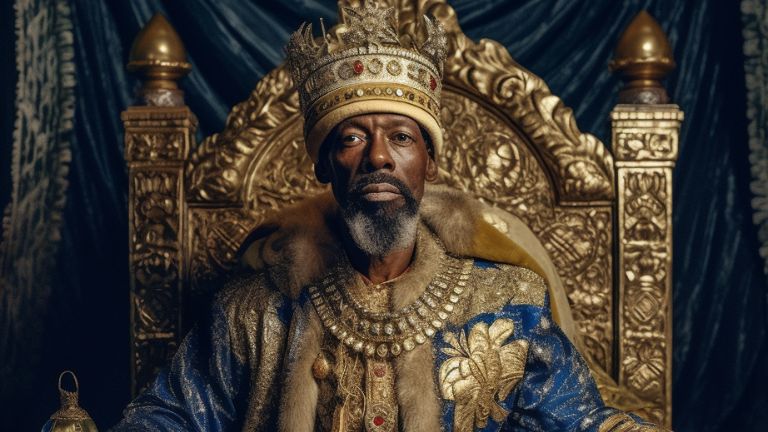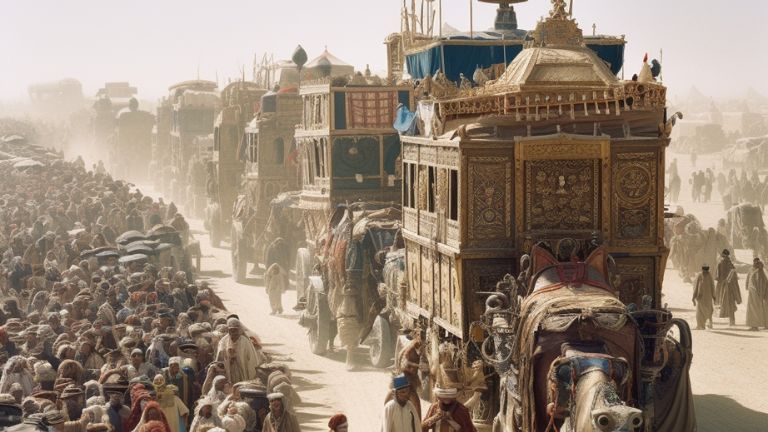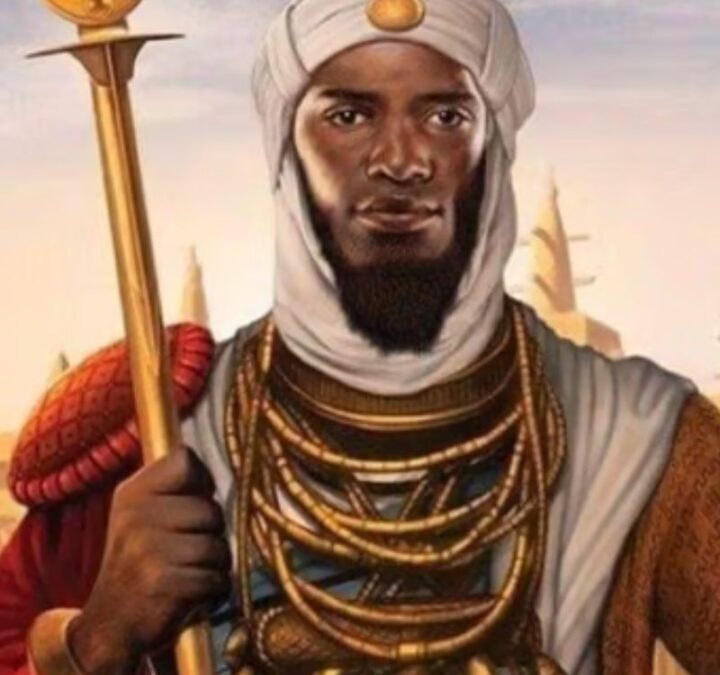Mansa Musa, king of Mali in the 14th century, is widely recognized as the richest man of all time. His extraordinary fortune and impressive reign continue to capture people’s imaginations to this day. In this article, we explore the life and legacy of Mansa Musa, delving into the twists and turns of his unparalleled wealth.
Mansa Musa: a living legend
Mansa Musa was born in 1280 in the Mali Empire, in what is now modern-day Mali. He became ruler of Mali in 1312 and reigned for almost 25 years. His wealth and power were so great that he was considered a living legend of his time.
As King of Mali, Mansa Musa controlled the largest gold mines of the time, enabling him to accumulate immense wealth. Mali was one of the leading gold producers of the time, and Mansa Musa had a monopoly on its trade, giving him a considerable economic advantage.

Mansa Musa’s fortune
Mansa Musa’s wealth was truly staggering. Historians and chroniclers of the time described his fortune as beyond imagination. Estimates put his wealth at over $400 billion in present value terms.
Mansa Musa’s main source of wealth came from the gold mines of Mali, which produced a considerable quantity of the precious metal. But his wealth was not limited to gold. He also had control over other resources such as salt, slaves and agricultural produce, enabling him to accumulate an even greater fortune.
Mansa Musa’s pilgrimage to Mecca
One of the most significant events in Mansa Musa’s life was his pilgrimage to Mecca in 1324. This trip was much more than a simple act of religious devotion. Mansa Musa used the occasion to flaunt his wealth and generosity, leaving a lasting impression wherever he went.
Accompanied by a huge caravan of thousands, Mansa Musa crossed from North Africa to Egypt, generously distributing gifts, gold coins and precious objects along the way. Such was his generosity that it caused temporary inflation in the regions he crossed.
The economic impact of his journey was considerable. Local markets and economies were turned upside down by the sudden influx of wealth, and Mansa Musa’s story spread around the world, establishing his reputation as an extraordinarily wealthy ruler.

Mansa Musa’s legacy
Mansa Musa’s legacy is deeply rooted in West African history. He was a fervent promoter of Islam and contributed to its spread in the region. He encouraged education and attracted scholars and artists from all over the Muslim world, making his kingdom a flourishing cultural center.
Mansa Musa also built numerous mosques and schools, leaving a lasting architectural legacy. Some of these structures still stand today, testifying to his greatness and impact on history.
Modern recognition of Mansa Musa
Mansa Musa’s fame has spanned the centuries and continues to be celebrated today. Numerous statues and representations of Mansa Musa have been erected around the world, testifying to his status as a historical icon. Books, films and songs have also been created in her honor, preserving her legacy for future generations.
Mansa Musa remains a powerful symbol of African wealth, cultural grandeur and generosity. His legendary reign and unrivalled wealth make him a fascinating figure who continues to inspire and amaze us.
Conclusion
Mansa Musa, King of Mali, is indisputably the richest man of all time. His extraordinary fortune, derived mainly from Mali’s gold mines, and his memorable pilgrimage to Mecca have left an indelible mark on history. His legacy, which extends far beyond his material wealth, continues to influence West Africa and capture the imagination of the world.
FAQ (Frequently asked questions)
Q: Was Mansa Musa the king of Mali?
A: Yes, Mansa Musa was king of Mali in the 14th century.
Q: How did Mansa Musa acquire his wealth?
A: His wealth came mainly from Mali’s gold mines, but he also had control over other resources such as salt, slaves and agricultural produce.
Q: How wealthy was Mansa Musa?
A: Estimates put his wealth at over $400 billion in present value terms.
Q: What impact did Mansa Musa’s pilgrimage to Mecca have?
A: Mansa Musa’s pilgrimage had a considerable economic impact, with generous distributions of wealth disrupting local markets.
Q: How is Mansa Musa commemorated today?
A: Mansa Musa is commemorated through statues, artistic representations and tributes in popular culture, as well as through the preservation of his architectural heritage.
See also our article: François l’Olonnais: The Fierce Pirate of the Caribbean










